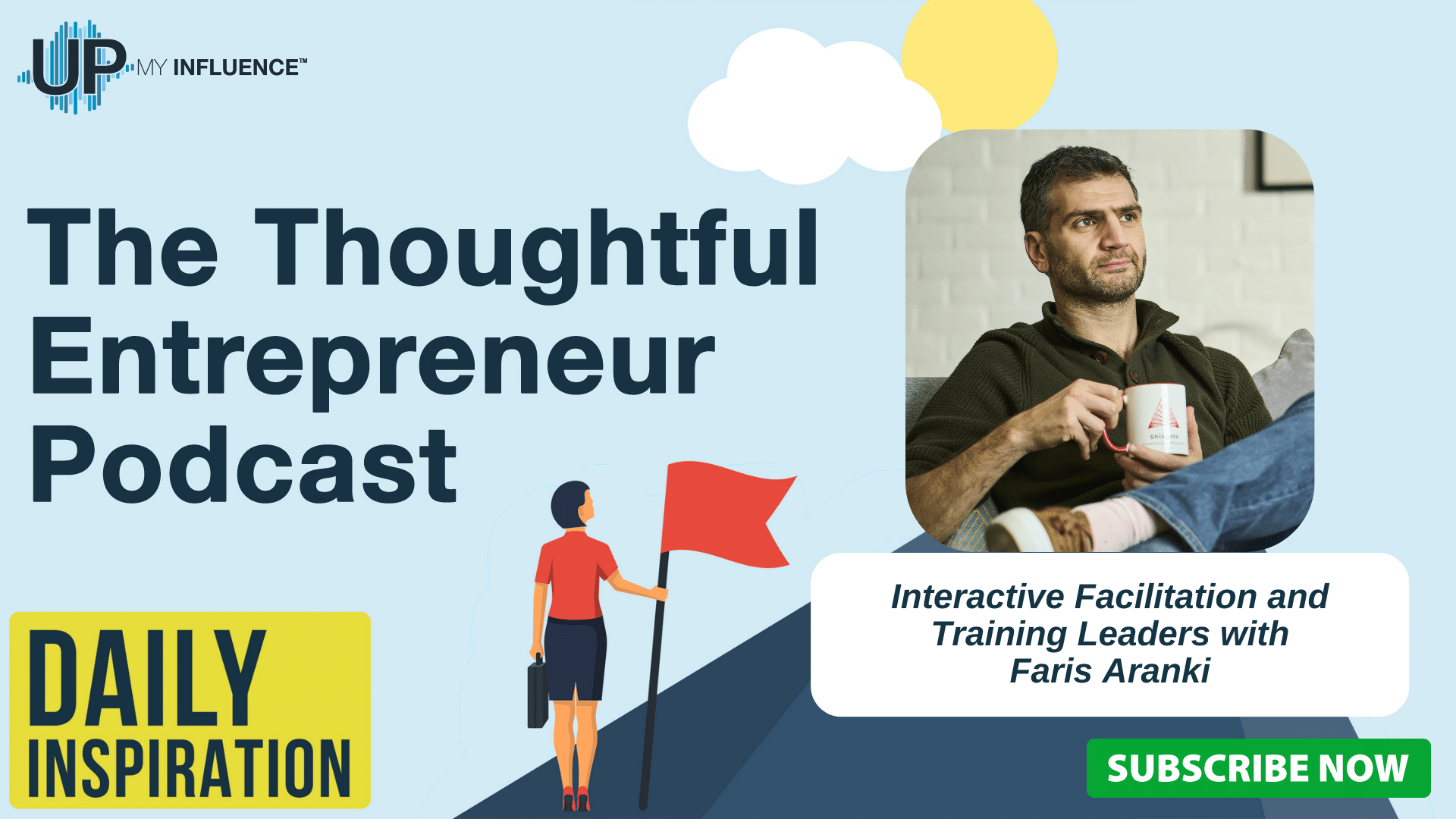THE THOUGHTFUL ENTREPRENEUR PODCAST
In this episode of the Thoughtful Entrepreneur, your host Josh Elledge speaks with the Founder & CEO of Shiageto Consulting, Faris Aranki.

Faris' company, Shiageto Consulting, operates under the metaphor of a sharpening stone, working to hone other companies by enhancing their strategies and effectiveness. They have a patented methodology based on three pillars: improving IQ (Intelligence Quotient), EQ (Emotional Quotient), and FQ (Focus Quotient). Their approach involves aligning team goals, enhancing communication, and eliminating distractions.
Faris delved into recognizing when a company needs sharpening and proactively addressing the issues. He says indicators of a dull IQ and EQ include a lack of clarity, limited ideas, and poor communication. He emphasized the need to eliminate distractions and focus on what truly matters.
Shiageto Consulting engages with clients through interactive facilitation, challenging biases, and filling team gaps. They also train leaders in soft skills such as influence, storytelling, and relationship-building.
Faris started the company four years ago after identifying a gap in strategy implementation. Despite a slow start as result of COVID-19 pandemic, they now work with big clients like Amazon and Heineken and startups.
Faris shared that he has worked with big companies like Coca-Cola, Conde Nast, Amazon, and BMW. However, he clarified that they don't only work with enterprise-level companies. The common factor among these companies is his relationships with people within them.
Faris believes that people like working with people they know and trust. Even if his company is small, if they have had a positive impact previously, these companies will come back to work with them.
Key Points from the Episode:
- Introduction of Faris as the founder and CEO of Shiageto Consulting
- Explanation of the company's metaphor of sharpening stones and how they help improve strategies and effectiveness
- Discussion of the three pillars of their methodology: improving IQ, EQ, and FQ
- Importance of recognizing when a company needs sharpening and being proactive in addressing issues
- Engagement with clients through interactive facilitation, challenging biases, and filling in gaps within teams
- Training leaders in soft skills such as influence, storytelling, and relationship-building
- Examples of clients they have worked with, including big companies like Amazon and startups
- Emphasis on the importance of trust in working with clients
- Working with a variety of smaller companies in different industries
About Faris Aranki:
With over two decades of experience catalyzing strategic change in diverse corporate and non-corporate settings, Faris Aranki is a seasoned professional adept at navigating the nuances of strategic success.
His extensive career has touched various companies, ranging from global giants to fledgling startups, and spanned multiple countries and industries.
Recognizing that achieving organizational goals extends beyond the quality of strategy alone, Faris founded Shiageto Consulting to enhance strategic effectiveness.
He emphasizes the critical role of effective engagement and barrier removal in accomplishing objectives. Faris has distilled his expertise in solving complex problems into Shiageto's workshops, courses, and methodologies, offering businesses and individuals a structured approach to overcoming obstacles.
With the belief that any team can benefit from these enhancements with the proper support, Faris Aranki and Shiageto Consulting stand as catalysts for transformative change.
About Shiageto Consulting:
Shiageto Consulting pioneers innovative approaches to enhance business effectiveness and bolster success in a demanding contemporary business landscape.
Faced with the daunting pressures of achieving success, businesses often resort to untested strategies, introducing various risks such as delivering the wrong outcomes, encountering delays, or overspending.
Shiageto Consulting mitigates these risks by focusing on sharpening Intelligence Quotient (IQ), Emotional Quotient (EQ), and Focus Quotient (FQ). IQ involves refining strategies for clarity, measurability, and resilience through fact-based stress testing.
These nuanced improvements serve as hidden levers, significantly enhancing the likelihood of success at a fraction of the cost.
Shiageto Consulting's methodology vividly illustrates this concept by likening a team's vision to scaling a mountain, emphasizing the precision required to achieve strategic objectives.
Tweetable Moments:
04:03 – “Why wait till the end and have to fix all the problems then? Foresee them and nip them in the bud early.”
03:30 – “Complacency can be a major problem.”
Apply to be a Guest on The Thoughtful Entrepreneur:
https://go.upmyinfluence.com/podcast-guest
Links Mentioned in this Episode:
Want to learn more? Check out Shiageto Consulting website at
Check out Shiageto Consulting on LinkedIn at
https://www.linkedin.com/company/shiageto/
Check out Shiageto Consulting on Facebook at
https://www.facebook.com/Shiageto
Check out Shiageto Consulting on Instagram at
https://www.instagram.com/shiagetoconsulting/
Check out Faris Aranki on LinkedIn at
https://www.linkedin.com/in/farisaranki/
Check out Faris Aranki on Facebook at
https://www.facebook.com/faris.aranki
Check out Faris Aranki on Twitter at
https://twitter.com/josefinecamp
Check out Faris Aranki on Instagram at
https://www.instagram.com/farisaranki/
More from UpMyInfluence:
We are actively booking guests for our The Thoughtful Entrepreneur. Schedule HERE.
Are you a 6-figure consultant? I’ve got high-level intros for you. Learn more here.
What is your #1 Lead Generation BLOCKER? Take my free quiz here.
Want to learn more about all the podcasts managed by UpMyInfluence? Opt in here.

